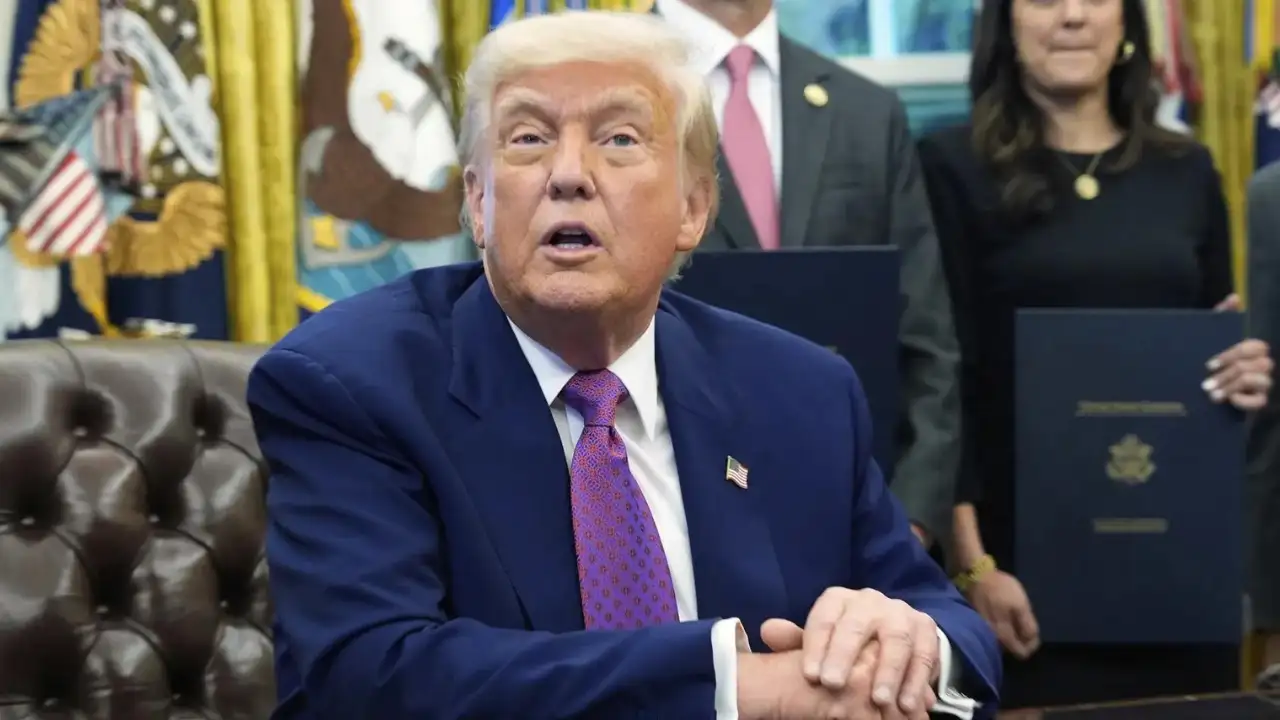Donald Trump’s Kashmir Mediation Proposal Poses Challenges for India

For decades, the Indian foreign ministry has maintained a strict stance against third-party mediation in its long-standing dispute with Pakistan over Kashmir. Recently, U.S. President Donald Trump announced a ceasefire between the two nations after four days of intense cross-border clashes, a move that has sparked controversy in India. Trump’s comments about potentially facilitating a solution to the Kashmir issue have raised eyebrows in New Delhi, where officials are wary of any external involvement in the matter.
Background of the Kashmir Dispute
The Kashmir conflict dates back to 1947, coinciding with India’s independence from British rule and the subsequent partition that created Pakistan. Both countries claim the region in its entirety but only administer parts of it. Over the years, numerous bilateral talks have failed to resolve the issue, with India asserting that Kashmir is an integral part of its territory. The Indian government has consistently ruled out negotiations involving third parties, a position that has been reinforced in recent years, especially after the revocation of Jammu and Kashmir’s special status in 2019.
The latest escalation in tensions began following Indian airstrikes targeting what it described as terrorist infrastructure in Pakistan, in response to a deadly attack on tourists in Indian-administered Kashmir that resulted in 26 fatalities. India has accused Pakistan of complicity in the attack, a claim that Islamabad vehemently denies. As military actions intensified, with both nations deploying fighter jets and missiles, Trump’s intervention aimed to prevent a potential full-scale conflict.
Reactions to Trump’s Mediation Offer
Trump’s announcement of a ceasefire and his willingness to mediate have not been well received in India. Former Indian Foreign Secretary Shyam Saran noted that such an offer contradicts India’s long-standing policy against third-party involvement. The Indian National Congress party has called for an explanation from the government regarding the ceasefire announcement and whether it indicates a shift in India’s diplomatic stance. Congress spokesperson Jairam Ramesh questioned if this development opens the door for third-party mediation, emphasizing the need for clarity on diplomatic channels between India and Pakistan.
The U.S. Secretary of State’s statement, which suggested that both nations agreed to discuss a broad range of issues at a neutral site, has further surprised Indian officials. Historically, India has resisted any external mediation, citing the 1972 Simla Agreement, which committed both countries to resolve their differences through bilateral negotiations. Indian officials have expressed concerns that even if agreements are reached with civilian governments in Pakistan, the military’s influence could undermine those efforts, as seen during the Kargil conflict in 1999.
India’s Diplomatic Dilemma
India’s position on Kashmir has become increasingly rigid, particularly after the revocation of Jammu and Kashmir’s special status. Trump’s recent comments have provoked anxiety among many Indians, who perceive them as an attempt to internationalize the Kashmir issue. The Modi administration has yet to formally respond to Trump’s mediation offer, but Foreign Minister Subrahmanyam Jaishankar reaffirmed India’s commitment to combating terrorism, indicating that direct bilateral talks may not resume soon.
In contrast, Pakistan views Trump’s intervention as a potential breakthrough. Pakistani analysts argue that the lack of mutual trust between India and Pakistan necessitates third-party mediation. They believe that the international community’s involvement is crucial to prevent future conflicts, especially given the rapid escalation of tensions in recent weeks. The differing perspectives on mediation highlight the complexities of the Kashmir issue and the challenges both nations face in navigating their diplomatic relations.
Implications for U.S.-India Relations
The United States has increasingly sought to strengthen its ties with India, viewing it as a strategic partner in countering China’s growing influence in the region. India is a key member of the Quadrilateral Security Dialogue (Quad), which includes the U.S., Australia, and Japan. Recent years have seen the U.S. supply modern military equipment to India, which is keen to modernize its armed forces.
However, Trump’s willingness to engage in the Kashmir dispute raises questions about the future of U.S.-India relations. Historically, American administrations have been cautious about intervening in the Kashmir issue, respecting India’s sensitivities. The current situation presents a delicate balancing act for India, which must navigate its diplomatic relationship with the U.S. while maintaining its firm stance against third-party mediation. Any attempt to broaden discussions on contentious issues, such as the status of Kashmir, could provoke significant domestic backlash, complicating Modi’s diplomatic strategy.
Observer Voice is the one stop site for National, International news, Sports, Editor’s Choice, Art/culture contents, Quotes and much more. We also cover historical contents. Historical contents includes World History, Indian History, and what happened today. The website also covers Entertainment across the India and World.
Follow Us on Twitter, Instagram, Facebook, & LinkedIn

